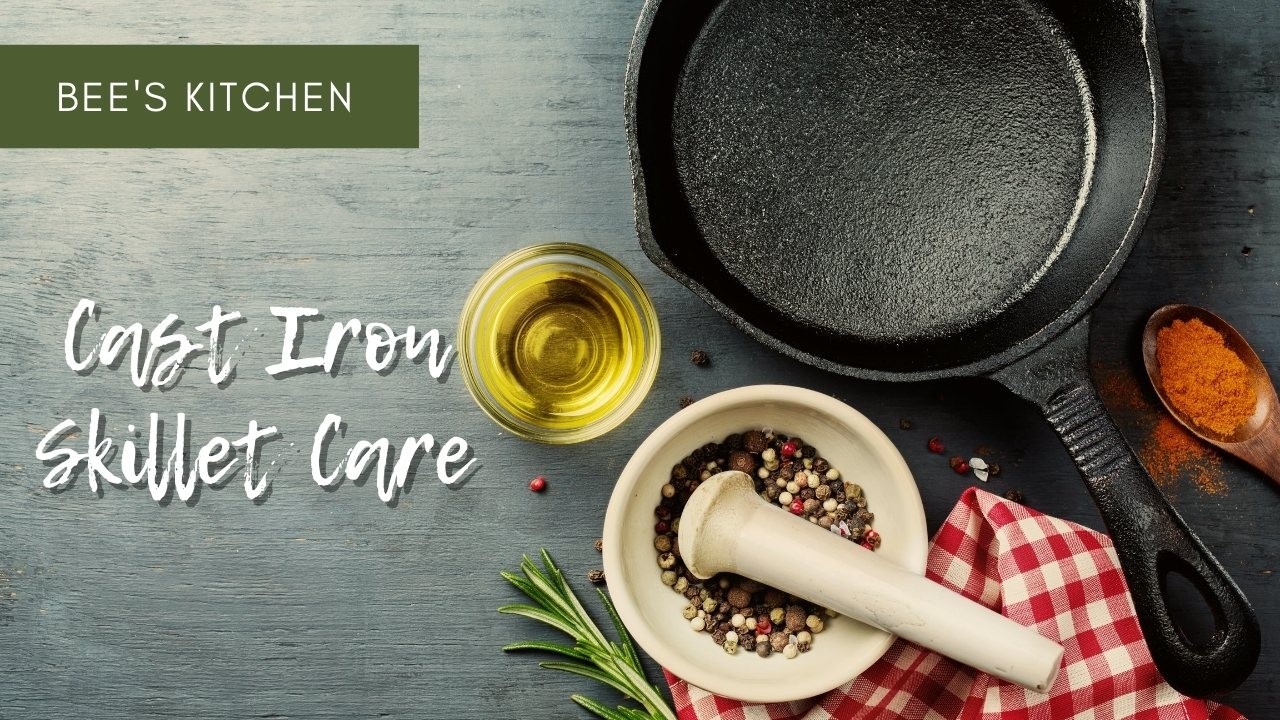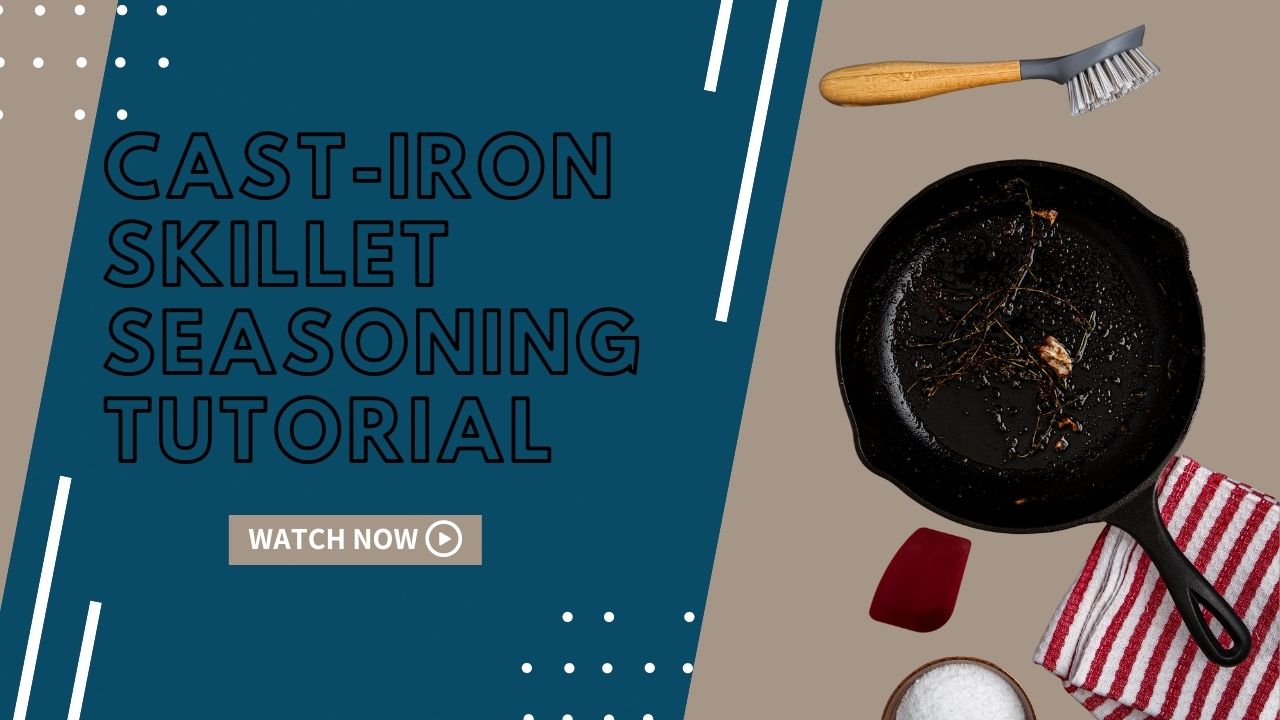
How to Make Your Cast Iron Skillet Last a Lifetime
Jul 12, 2022Whether you have just purchased your first cast iron skillet or found one at the thrift store, with proper care, a cast-iron skillet can last a lifetime!
I will admit, it’s only been within the last decade that I started cooking with a cast-iron skillet. Now it’s a staple in our kitchen as well as our camp kitchen. Cooking with a cast iron skillet has so many great benefits as well!
Benefits of Cooking with a Cast-Iron Skillet
- They are durable and versatile. They can be used on the stovetop, in the oven, or even over a campfire!
- They retain heat and seasoning. Your food cooks more evenly and has great flavor thanks to the porous nature of the skillet.
- They increase the iron in your food. It’s true! Food cooked in a cast-iron skillet has been shown to have 16.2% more iron.1 This is great if you tend to be iron deficient. Include foods rich in vitamin C to increase the body’s ability to absorb iron.
- They are non-toxic. Remember those non-stick Teflon-coated pans that were all the rage? Further research noted that Teflon is actually pretty toxic when heated and its use of it in pans was officially banned in 2014.2 Due to toxicity concerns, PFOA has been replaced with other chemicals such as GenX, but these new alternatives are also suspected to have similar toxicity.3 Stick to cast iron, stainless steel, or ceramic for safer options.
In addition to these great benefits, a cast iron skillet can last for generations with proper care.
Cast Iron Care Tips
- Don't use dish soap. Cast irons are porous and using soap may make your food taste like dish soap and strips your pan of the seasoning it needs.
- Do use water and a soft-bristled brush to clean up
- Don't use abrasive scrubbers or scouring pads.
- Do loosen burned-on bits of food with water and salt. Place the pan over a heat source for 5 minutes and use a spatula or brush to gently lift the food particles.
- Don't let your pan air dry. Air and water are the enemies of iron. Air drying may cause your pan to rust.
- Do use a soft towel to dry completely before storing.
It is recommended that you season your cast iron skillet 2-3 times per year (or more frequently if needed). Seasoning can be used to restore a pan that may be in need of a little extra TLC. Even the most used and abused cast iron skillet can be brought back to life with these seasoning steps.
Steps to Season a Cast Iron Skillet
- Add about 1 tablespoon of oil to your cast iron. Avoid inflammatory oils like canola, soybean, and vegetable oil. I prefer to use a high-heat oil like avocado oil.
- Using a paper towel, thoroughly coat your pan. Don't forget to wipe the oil on the handle and the underside of the pan.
- Heat the oven to 200 degrees Fahrenheit. Lay a piece of foil on the oven rack and place your pan on the foil upside down. Heat for 10 minutes.
- Remove the pan from the oven and add another small amount of oil - about 1 teaspoon.
- Use a new paper towel to again thoroughly coat your pan, including the handle and underside.
- Increase your oven temperature to 350 degrees Fahrenheit and return the pan, upside down on top of the foil, to the oven for 30 minutes.
- Remove the pan from the oven. Using a dry paper towel, wipe the pan to remove any excess oil. Let it cool completely before storing.
Want a visual? Check out this step-by-step video⬇
Cooking with a cast iron skillet is especially easy when camping. One-pot camping recipes with minimal dishes are a must to enjoy more time in nature! For camping meal recipe ideas, check out these culinary resources, Off the Grid Provisions Volume 1 and Volume 3, for the ultimate camp recipe guide.
*The information available on this website is for general health information only and is not intended to be a substitute for professional medical advice, diagnosis, or treatment. You should not rely exclusively on information provided on the Website for your health needs. You can read more about our disclaimer here.*
References
Are you overwhelmed by all of the conflicting information regarding health, hormones, nutrition, and weight management?
Join me once a month for a FREE "Ask Me Anything" live Zoom sesh! I'll answer all the questions you've been spending so much time searching the internet for.










